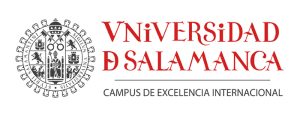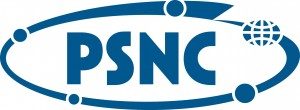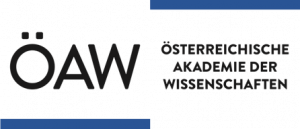Partners

The University of Salamanca, founded in 1218, is today a modern European University, open to the culture of practically every branch of teaching, Its large experience in international collaborations is documented both in the cooperation agreements in force with over 300 institutions around the world and in the participation of its researchers in several international projects. The University of Salamanca can offer valuable experience thanks to the development and management of a significant number of European projects under the subsequent RTD European Framework Programmes (I to VII), H2020 and other European Programmes and Actions (Marie Curie Actions, Integrated project, Erasmus+, Lifelong Learning Programme, LIFE, Drug Prevention and Information Programme, INTERREG, Alfa, etc.), acting through several roles: coordinator, contractor, associated contractor, member, host institution. Since 2009, it has been recognised as Campus of International Excellence (http://cei.usal.es/en) by the Spanish Government considering its high quality and excellence in teaching, training, researching activities and academic life.
The Research Group on Visual Analytics (VisUsal) is part of the InterAction and eLearning (GRIAL) is an official and stable group of the USAL, selected as an Excellent Research Group by the Junta de Castilla y León. Directed by Francisco José García Peñalvo, Computer Science Department Associate Professor, the group is made up of several researchers belonging to different areas, from ICT to Didactics, Computer Science, Philosophy, Linguistics, etc., as well as project management experts.

The Poznan Supercomputing and Networking Center (PSNC), affiliated to the Institute of Bioorganic Chemistry of the Polish Academy of Sciences, was established in 1993 by the State Committee for Scientific Research. PSNC is responsible for the management of the countrywide Polish National Research and Educational Network (NREN). From the very beginning PSNC has served as an HPC service provider, the operator of Poznan Metropolitan Area Network (POZMAN), and as a network services provider. PSNC is also the operator of the polish national digital library federation. PSNC has several active computer science research and development groups working on such aspects as: digital media services, digital libraries, ontology engineering and semantic Web technologies, mobile user support technologies and services, telemedicine and ehealth, Grid & cloud computing, optical networks and QoS management. PSNC has participated in over 100 projects cofunded by the EU commission.
One of the leading activity of PSNC is building national digital libraries infrastructure by the development of digital libraries software, data sharing and aggregation services, e-learning resources, knowledge management systems and also digitisation process management and long term preservation services. This infrastructure provides an access to over 4,5 million metadata records.

Trinity College Dublin is recognized internationally as Ireland’s premier university and is ranked in 98th position in the top 100 world universities and 36th in Europe in the 2016 QS World University Rankings. TCD is also highly successful at securing research funding especially from EU-funded programmes, with annual Research income for the academic year 2015/2016 of €96m. The Arts and Humanities enjoy a particularly strong reputation within these.English is placed 32nd in the world and 9th in Europe,Modern Languages rank 39th in the world and 13th in Europe and History is in the top 100 worldwide according to the 2016 QS University Rankings by Subject. Established in 2006 the Trinity Long Room Hub is Trinity’s research institute for the Arts and Humanities operating across nine schools and the library. It is also the home Institute for the Trinity Centre for Digital Humanities, a research area in which TCD has hosted a number of high profile projects, the 1641 Depositions Project (a collaboration with IBM), CENDARI, PARTHENOS and CULTURA and the Centre’s latest project KPLEX. All of this work depends on close collaboration with the SFI ADAPT Centre, based in the School of Computer Science and Statistics, which has established a worldwide reputation in the research of knowledge and semantic representation, adaptive portals for information analysis, educational systems, Adaptive Hypermedia systems and intelligent pedagogic systems. ADAPT has pioneered dynamic techniques for digital content retrieval, composition and automated customisation, and its researchers have extensive experience collaborating in EU FP and Horizon 2020 ICT projects at STREP, IP and CSA level in eLearning, Language Technologies and Digital Humanities, as well as co-ordinating the EU FP7 CULTURA STREP.

The Austrian Centre for Digital Humanities and Cultural Heritage (ACDH-CH) of the Austrian Academy of Sciences is a research institute which was set up with the declared intention of fostering the humanities by applying digital methods and tools in a wide range of academic fields. It offers a growing portfolio of services and knowledge, amongst them the implementation of Open Innovation methods and practices in science (exploration space) and applying knowledge science for society and development, aiming to innovate the humanities. The ACDH-CH is furthermore running a repository for digital language resources (ARCHE), hosting and publishing data, developing software, and working on establishing a tightly woven network of specialised knowledge centres by offering advice and guidance to the research community and actors beyond.
In their research, the ACDH-CH team is mainly concerned with text- and language-related questions focusing on non-standard and historical linguistic varieties and eLexicography. Current projects investigate experimental scholarship and knowledge science, Open Innovation methods and practices, technical standards, infrastructure components, semantic technologies and text technological methods. The activities are embedded within the European infrastructure consortia, such as CLARIN-ERIC and DARIAH-EU.
ACDH-CH offers experience in initiating, managing and participating in projects, initiatives and networks of national, European and global scope. exploration space is listed as one of the best practice examples of the Open Innovation initiative of the Austrian government.
